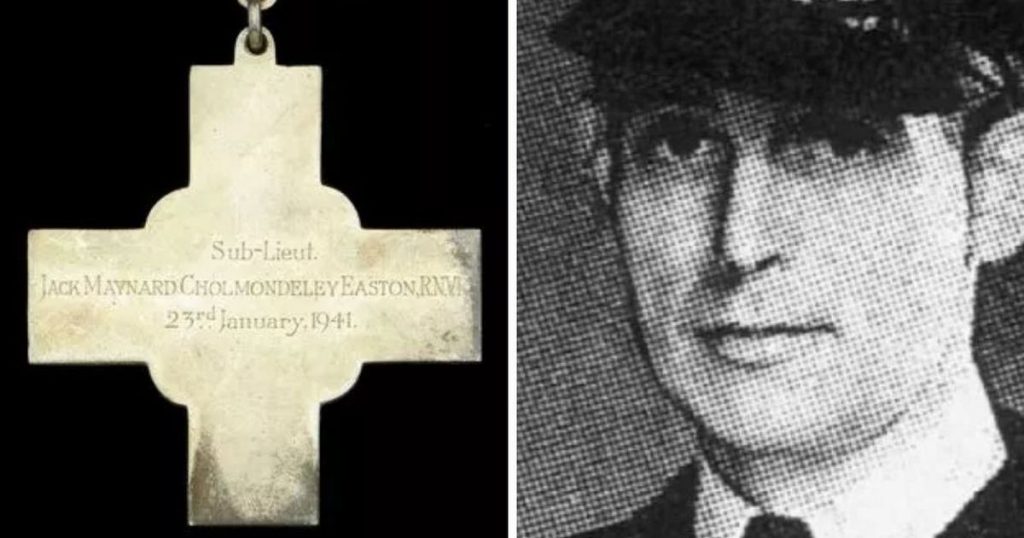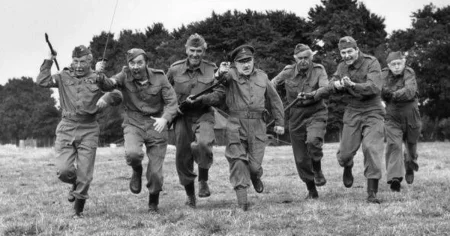The George Cross medal awarded to Sub Lieutenant Jack Maynard Cholmondeley Easton, a mine disposal hero who was buried alive during the London Blitz, was recently sold for £110,000 at an auction in Mayfair. Easton was buried alive when an enemy parachute mine exploded in London’s East End in October 1940, and despite sustaining severe injuries, he managed to survive. His assistant, Ordinary Seaman Bennett Southwell, unfortunately did not survive the incident. Before the incident, Easton had defused 16 explosives, showing incredible bravery and dedication to his duty. He was awarded the George Cross for his service during World War II.
Easton’s recovery from the injuries he sustained during the explosion was nothing short of miraculous, as he spent a year in plaster before being awarded the George Cross. He recalled the fateful assignment in his book, mentioning that mine disposal operatives like him always knew there would likely be a ‘last’ assignment, but they tried to suppress that thought to maintain their sanity. The sale of his medal saw it being acquired by a private collector of British Gallantry medals, ensuring that his bravery and sacrifice remained recognized and honored.
Despite the danger and uncertainty faced by Easton and his colleagues in the mine disposal unit during World War II, he continued to serve on various assignments and missions. He defused numerous explosives, including some that had crashed through buildings such as the Russell Hotel in Bloomsbury. Easton remained dedicated to his duties despite the risks involved, showcasing his commitment and courage. His near-death experience did not deter him from continuing to serve his country during the war.
Following his recovery, Easton served as the First Lieutenant of motor minesweepers and led a minesweeping flotilla off Normandy. He was wounded for a second time when a new type of German mine detonated under his ship, but he managed to survive once again. After the war, he returned to his family’s law firm in the City of London and continued to serve as a committee member and legal adviser to the V.C. and G.C. Association. Easton passed away in 1994 at the age of 88, leaving behind a legacy of bravery and service to his country during one of its most challenging times.
The George Cross, the civilian equivalent of the Victoria Cross, was introduced by King George VI in 1940 in recognition of the bravery displayed by civilians during World War II. Easton’s award of the George Cross highlights the incredible sacrifices made by civilians who were on the frontline of the war, especially in cities that were under attack. His dedication to mine disposal work and his unwavering courage in the face of danger exemplify the resilience and strength shown by many individuals during the war. The sale of his medal serves as a reminder of the bravery and selflessness displayed by individuals like Jack Maynard Cholmondeley Easton during one of the most challenging periods in history.















